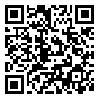BibTeX | RIS | EndNote | Medlars | ProCite | Reference Manager | RefWorks
Send citation to:
URL: http://sjsph.tums.ac.ir/article-1-260-en.html
Primary school students constitute an important demographic category: the fact that they are going through a phase of rapid physical, social and mental growth makes them especially vulnerable to the obnoxious effects of disease and malnutrition. In Iran, one of the major causes of malnutrition and growth deficiency is lack of food. The objective of this study was using anthropometric techniques to assess nutritional status in primary school students at Bandar Abbas. This is a cross-sectional study involving 1300 subjects selected by cluster sampling. Indices used in this study were weight for age (W/A), weight for height (W/H), and height for age (H/A). Malnutrition was defined as an index value more than 2 standard deviations below the standard level. We found wasting (W/H) in 15.7%, stunting (H/A) in 11.7% and underweight (W/A) 21.2% of the subjects, with no significant difference in nutritional status between boys and girls. Prevalence of all three types of malnutrition increased with age and school grade. Students who had received nutrition education showed better nutrition status compared to those without such background education. Measures to control malnutrition can include education, proper recording and follow-up of nutrition and growth data in the form of health files, and nutritional interventions. The latter is particularly relevant in higher age groups and school grades.
| Rights and permissions | |
 |
This work is licensed under a Creative Commons Attribution-NonCommercial 4.0 International License. |





